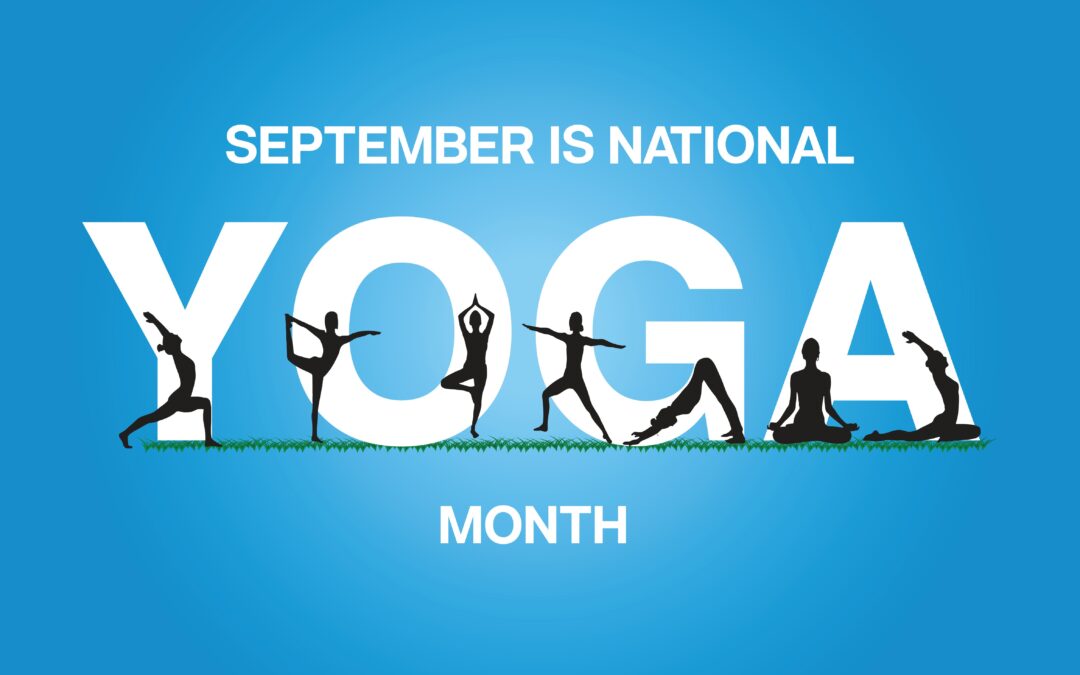As we celebrate National Yoga Month, it’s a perfect time to explore the profound synergy between yoga therapy, self-love, and addiction treatment. While yoga has long been renowned for its physical and mental benefits, it has emerged as a powerful tool in the realm of addiction recovery. In this comprehensive article, we will delve deep into the transformative effects of yoga therapy and self-love, showcasing their positive impact on addiction treatment. As a leader in the addiction treatment industry, SRC® is excited to shed light on this holistic approach that nurtures the mind, body, and soul, paving the way for lasting recovery.
The Yoga Therapy Revolution:
Yoga therapy, a specialized form of yoga, focuses on addressing specific physical, mental, or emotional challenges. In the context of addiction treatment, it provides a tailored approach to healing that goes beyond traditional yoga practice.
- Mindfulness and Self-Awareness: Addiction often stems from a lack of self-awareness and an inability to manage emotions. Yoga therapy teaches mindfulness, enabling individuals to observe their thoughts and feelings without judgment, a vital skill in recovery.
- Emotional Regulation: Through breathwork and asanas (yoga postures), yoga therapy helps individuals regulate their emotions. This is invaluable for those in recovery, as it reduces the need to self-medicate with substances.
- Stress Reduction: Stress is a significant trigger for relapse. Yoga therapy equips individuals with tools to manage stress effectively, promoting emotional stability during recovery.
The Power of Self-Love:
Self-love is a fundamental aspect of addiction recovery that is often overlooked. It involves cultivating compassion and acceptance for oneself, fostering a sense of worthiness and belonging.
- Breaking the Shame Cycle: Addiction can be accompanied by intense shame and self-criticism. Self-love breaks this destructive cycle, allowing individuals to forgive themselves and move forward in their recovery journey.
- Resilience and Self-Care: Loving oneself means prioritizing self-care. This includes maintaining physical health, practicing self-compassion, and setting healthy boundaries—all of which are crucial in maintaining sobriety.
- Positive Self-Identity: Self-love helps individuals redefine their self-identity beyond addiction. It encourages them to see themselves as valuable, capable, and deserving of a better life.
The Symbiosis of Yoga Therapy and Self-Love:
When yoga therapy and self-love intersect, a powerful synergy emerges. Yoga therapy serves as a practical and experiential tool to cultivate self-love, and self-love, in turn, enhances the benefits of yoga therapy.
- Healing Trauma: Addiction is often rooted in trauma. Yoga therapy provides a safe space for individuals to release stored trauma while self-love nurtures their emotional healing.
- Building Resilience: Together, these practices empower individuals to build resilience in the face of triggers and cravings. They learn to respond to challenges with self-compassion rather than seeking solace in substances.
- Enhancing Self-Esteem: Yoga therapy enhances physical and mental well-being, contributing to improved self-esteem. This newfound confidence fuels the belief in one’s ability to overcome addiction.
Incorporating Yoga Therapy and Self-Love in Addiction Treatment:
Integrating yoga therapy and self-love into addiction treatment requires a thoughtful and individualized approach.
- Qualified Instructors: Trained yoga therapists with experience in addiction recovery should guide participants. Their expertise ensures safe and effective practice.
- Personalized Plans: Addiction treatment must be tailored to each individual’s needs. Yoga therapy sessions and self-love exercises should align with their unique challenges and goals.
- Holistic Treatment: Yoga therapy and self-love should complement traditional addiction treatment methods, such as counseling, group therapy, and 12-step programs, as part of a holistic approach.
- Consistency and Commitment: Consistent participation is key to reaping the benefits. Encouraging individuals to practice regularly fosters lasting change.
“Addiction is a threefold disease that affects a person’s body, mind, and spirit. Yoga is a healing practice that benefits the body, mind, and spirit. Because of this, yoga can have such a profound impact on those struggling with addiction-especially early on in their recovery. One of my favorite parts of Scottsdale Recovery Center® is that they really understand just how beneficial this mindful movement can be, and they provide yoga and movement everyday of the week for all levels of care. I have witnessed so many success stories through their program; individuals having multiple years in recovery after graduating. I believe a large part of that is due to SRC’s holistic approach to addressing substance abuse.” – Jacob Daffner, Spiritually Fit Recovery
Conclusion:
As National Yoga Month invites us to explore the transformative potential of yoga therapy and self-love, it’s evident that these practices hold immense promise in the realm of addiction treatment. Addiction recovery is not solely about breaking free from substances; it’s about rediscovering one’s worth, resilience, and capacity for self-compassion. The symbiotic relationship between yoga therapy and self-love empowers individuals to embark on a journey of healing and self-discovery. At SRC, we wholeheartedly support the integration of these holistic approaches into addiction treatment programs, offering individuals a path to lasting sobriety, self-acceptance, and profound self-love.

